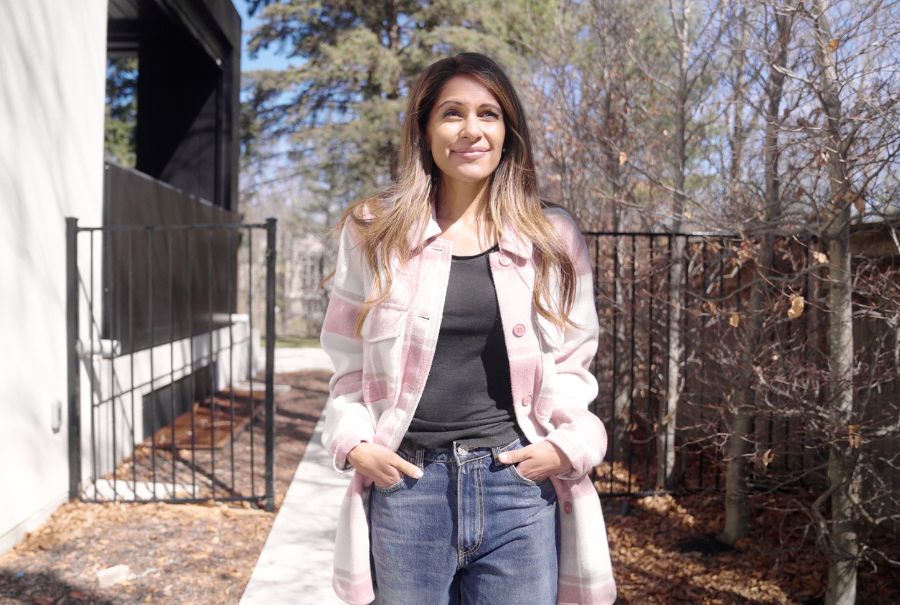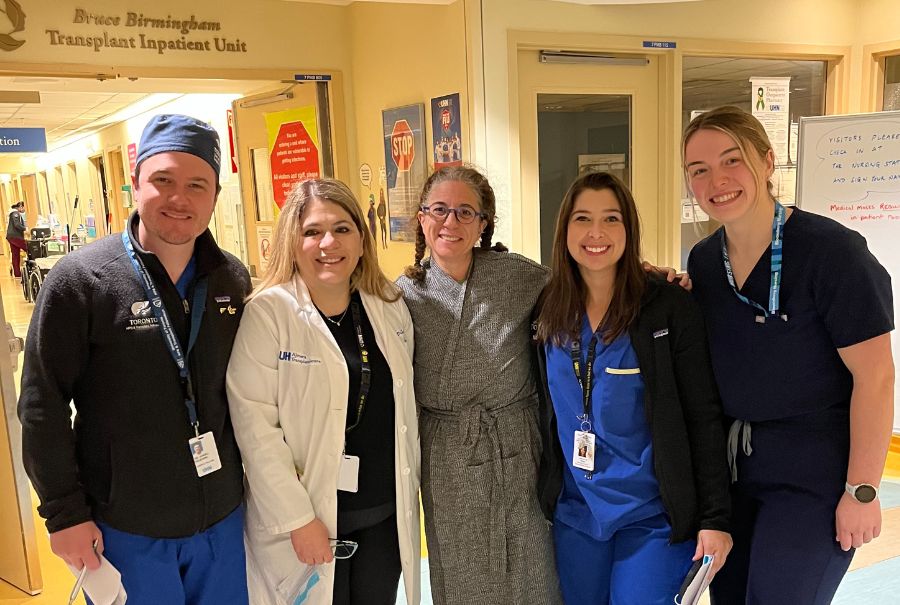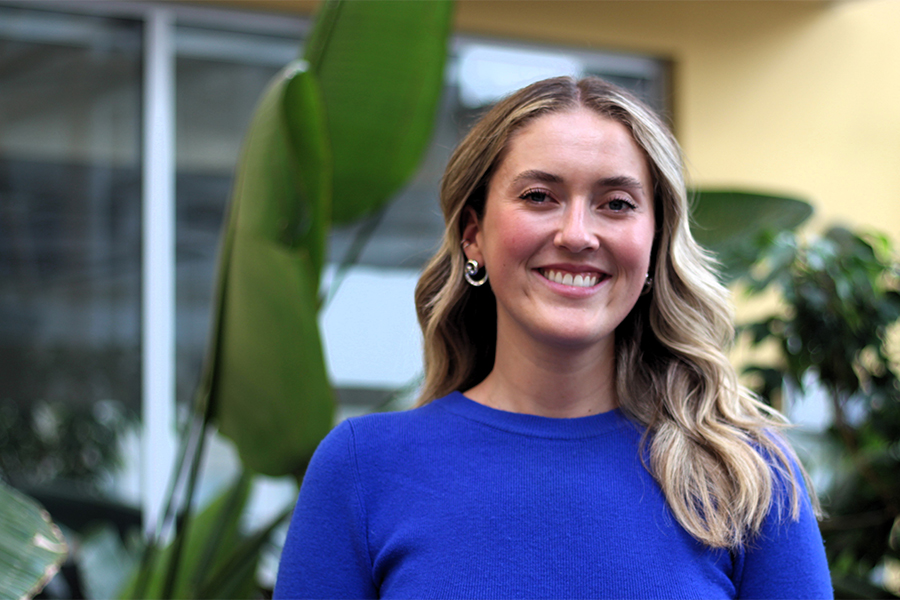
Living with lupus since she was in her 20s, Amber Authier is familiar with managing her health. But that took on a whole new meaning in September 2019, when, at age 45, Amber learned she had end stage kidney disease.
In the weeks prior to that diagnosis, Amber was not feeling well. Flu-like symptoms. Tired. Sleeping poorly. After a visit to her nurse practitioner revealed high blood pressure, her family doctor ordered a number of tests which showed that Amber’s kidneys were no longer working and she needed emergency dialysis.
“Like most people, I had never given much thought to my kidneys and took for granted that they were doing what they were supposed to do in my body,” says Amber, who continued to work while receiving dialysis three evenings a week at Toronto General Hospital (TGH).
After her kidney disease diagnosis, Amber says she went into “research mode,” determined to know all she could about her new reality. She learned about meal planning and food restrictions, what her kidneys are responsible for and how dialysis would be doing the work that the organs no longer could.
“Dialysis is a community of lovely patients and nurses that spend so much time together,” Amber says.
Thursday, March 14 is World Kidney Day, which aims to raise awareness of the importance of the kidneys to overall health, and to reduce the frequency and impact of kidney disease and its associated health problems worldwide. This year’s theme is “Kidney Health for All – Advancing Equitable Access to Care and Optimal Medication Practice.”
An estimated 850 million people around the world – approximately one in 10 adults – have chronic kidney disease (CKD) due to various causes.
Over the past 30 years, treatment efforts have focused on preparing for and delivering kidney replacement therapies. With recent therapeutic breakthroughs, there are now opportunities to prevent or delay disease and lessen complications such as cardiovascular disease and kidney failure, ultimately prolonging the quality and quantity of life for people living with CKD.
“World Kidney Day is an opportunity for us to raise awareness among the general population about the importance of kidney health by giving them a better understanding of how living with kidney disease impacts patients’ lives,” says Anna Gozdzik, nurse navigator in UHN’s Division of Nephrology, one of Canada’s largest, and co-Chair of the UHN World Kidney Day Planning Committee. “It is also an opportunity to teach people about risk factors and what to do if they are diagnosed with chronic kidney disease.”

For Amber, during the early days of her hemodialysis, her health care providers talked to her about kidney transplantation. She started the evaluation process, completed all the tests and was listed for transplant in June 2021.
Amber had a living donor kidney transplant in the spring of 2022. It was successful and the new organ was initially working well.
Unfortunately, a few days into her recovery, Amber’s care team noticed rising toxins in her blood and two blood clots. Following surgery to remove the clots, she was informed her new kidney was no longer working and it was removed.
Amber re-started hemodialysis. She returned to her previous schedule at TGH, surrounded by the nurses and fellow patients she was familiar with prior to her transplant, who were “so kind in those weeks following my surgeries.”
Amber admits it was tough to come to terms with not realizing the life she dreamed of post-transplant. But valuable lessons were learned along the way.
“Not every transplant story has a happy ending,” Amber says. “But your people will get you through anything.”
Amber encourages everyone to “pay attention to your body” and also sign up for organ donation.
“Be patient with yourself. Life is hard,” she says. “An unhealthy life is harder.”

No one ever changed the world on their own but when the bright minds at UHN work together with donors we can redefine the world of health care together.


